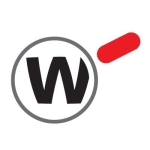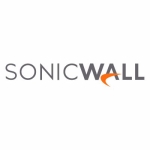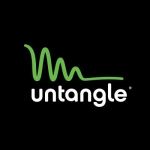What is our primary use case?
Currently, we have 16 remote sites. Some of them are sales offices and some of them are industrial plants. And we have a centralized IT department here in Brazil. The business asked me to support those remote sites. We started using the Firepower Threat Defense, which is one of the versions of next-gen firewalls from Cisco, at some of the sites. We have them operating at five sites, and we are deploying at a sixth site, in Mexico, with the same architecture. That architecture has the firewall running on the site's router, and we manage them all from here in Brazil.
How has it helped my organization?
Overall, I would summarize Firepower NGFW's effect on our company's security position by saying that, until now, we haven't had any major security incidents. The investment we made, and the investment we are still making in that platform, have worked because they are protecting us from any risks we are exposed to, having all these remote sites and using the internet as the way to connect those sites. They are doing what they promised and they are doing what we paid for.
What is most valuable?
For us, the main feature is due to the fact that we have internet connections for all these sites, and we use the internet to communicate with our data center using VPN. So the VPN support in these boxes is one of the most valuable features.
Also, with the firewall itself, the protection and security features, like URL filtering, the inspection, and the IPS feature, are also very valuable for us. We don't have IT staff at most of the sites so for us it's important to have a robust firewall at those sites, to support the business and give us peace of mind. If we do have an incident, since we don't have any IT personnel there for support, we need to do everything remotely.
It provides us with application visibility and control. We can see, on the dashboard, all the applications that are most used and which are under some sort of risk or vulnerability. From my perspective, which is more related to the network itself and the infrastructure, not the security aspect, it helps a lot when we need to check some situation or issue that could be related to any attack or any violation. We can see that there are one or two or three applications that are the top-consuming applications. We can use this information to analyze if there is a deviation or if it's something that we need to consider as normal behavior and increase the bandwidth on the site. It's very important to have this analytic view of what's happening. That's especially true for us, since we have information on all these remote sites but we don't have IT resources on-premises. Having this view of all the sites in the same pane of glass is very important.
It's not just the visibility of things, but the management of application behavior is very important. If I see that, for example, Facebook is consuming too much bandwidth, I can make a policy on the console here and deploy it to our remote offices. So the application visibility feature is one of the key parts of the solution.
NGFW's ability to provide visibility into threats is also one of the important features. Although we have several applications that are based on-premises — we have databases and file servers that only exist inside the company or inside those remote sites — we see more traffic going to and coming from the internet every day. It's not optional anymore to have visibility into all this traffic. More and more, we are moving things to Office 365 or other SaaS platforms which are hosted on the internet. We need to see this traffic crossing our network. It's a top priority for us.
When it comes to Talos, I recognized the importance of it before they were even calling it Cisco Talos. As a user of the URL filtering product, the IronPort appliances, for six or seven years, perhaps or more, I was introduced, at that time, to a community that was called SenderBase.org, which was like the father of the Cisco Talos. Knowing them from that time, and now, the work they do is very important. It provides knowledge of what is happening in the security space. The information they can collect from all the hardware and software they have deployed with their customers is great. But the intelligence they also have to analyze and provide fixes for things like Zero-day attacks, for example, is crucial. They are able to map and categorize risks. They're unbeatable, currently. Although we know that other vendors have tried to replicate this service or feature, the history they have and the way they do their work, make it unbeatable currently.
What needs improvement?
Some products supersede others within Cisco. I have three platforms and some of the features are the same in two products. It's not clear for us, as a customer, if Cisco intends to have just one platform for security in the future or if they will offer one product for a particular segment, such as one product for the big companies, one product for the financial segment, another product for enterprise, and another product for small business.
Sometimes, Cisco itself has two products which are doing the same things in some areas. That is something they could make clearer for customers: the position of each product or the roadmap for having just one product.
For example, I have a management console for the next-gen firewalls we are deploying. But the SD-WAN also has some security features and I would have to use another management console. I don't have integration between the products. Having this integration or a roadmap would help. I don't know if there will be one product only in the future, but at least having better integration between their own products is one area for improvement.
Also, the user interface for the Firepower management console is a little bit different from traditional Cisco management tools. If you look at products we already use, like Cisco Prime or other products that are cloud-based, they have a more modern user interface for managing the products. For Firepower, the user interface is not very user-friendly. It's a little bit confusing sometimes. This is another area where they could improve.
For how long have I used the solution?
We have been using Cisco NGFWs for about for two years.
What do I think about the stability of the solution?
The stability is okay. It's robust enough to support the business we have. We haven't had any major issues with the product itself. Of course, we don't touch them frequently because it's a security deployment so it's not the type of thing where we make changes every day. Once we deploy them, and deploy the policies, we don't touch them frequently.
We have one issue at one of the sites, at times. There is a power outage at the site and the virtual machine itself crashes. We have to recover from the crash and reinstall the backup. It's something that is not related to the product itself. It's more that our infrastructure has a problem with power which led to a firewall problem, but the product itself is not the root cause.
What do I think about the scalability of the solution?
It is scalable in our scenario. It is scalable the way we deploy it. It's the same template or architecture, and that was our intention, for all our remote sites. From this point of view, the scalability is okay. But if one of those remote sites increases in demand, in the number of users or in traffic, we don't have too much space to increase the firewall itself inside that deployment. We would probably need to replace or buy a new, more robust appliance. So the scalability for the architecture is fine. It's one of the major requirements for our distributed architecture. But scalability for the appliance itself, for the platform itself, could be a problem if we grow too much in a short period of time.
I don't know how to measure how extensively we use it, but it's very important because without it, we can't have VPN and we can't communicate with our headquarters. We have SAP as our ERP software and it's located in our data center here at our headquarters. If we can't communicate with the data center, we lose the ability to communicate with SAP. So if we don't have the firewall running on those remote sites, it is a major problem for us. We must have it running. Otherwise, our operations at these remote sites will be compromised. In terms of volume, 40 percent of our sites are deployed and we still have plans to deploy the other 60 percent, this year and next year.
Regarding future demands, if we create new business, like we are doing now in Mexico, our basic template has this next-gen firewall as part of it. So any other new, remote sites we deploy in the future, would use the same architecture and the same next-gen firewall.
Which solution did I use previously and why did I switch?
For our remote sites we didn't use a specific security platform. We had the Cisco router itself and the protection that the Cisco router offers. But of course you can't compare that with a next-gen firewall. But here in our headquarters, we currently use Palo Alto for our main firewall solution. And before Palo Alto, we used Check Point.
The decision to use Cisco was because Cisco could offer us an integrated platform. We could have only one router at our remote sites which could support switch routing with acceleration, for IP telephony and for security. In the future we also intend to use SD-WAN in the same Cisco box. So the main advantage of using Cisco, aside from the fact that Cisco is, course, well-positioned between the most important players in this segment, is that Cisco could offer this solution in a single box. For us, not having IT resources at those remote sites, it was important to have a simple solution, meaning we don't have several boxes at the site. Once we can converge to a single box to support several features, including security, it's better for us.
The main aspect here is that if we had Fortinet or Check Point or Palo Alto, we would need another appliance just to manage security, and it wouldn't be integrated with what we have. Things like that would make the remote site more complex.
We don't currently have a big Cisco firewall to compare to our Palo Alto. But one thing that is totally different is the fact that Cisco can coexist with the router we have.
How was the initial setup?
I participated in the first deployment. I know it's not hard to do, but it's also not easy. It requires some knowledge, the way we deploy it. We use next-gen firewalls inside the Cisco router. It's virtualized inside the Cisco router. So you need to set settings on the router itself to allow the traffic that comes to the router to go to the firewall and return to the router to. So it's not an easy setup but it's not very complex. It requires some knowledge, not only of security, but also of routing and related things. It's in the middle between complex and simple.
Once you have the templates for it, it's easier. It can take a day or two to deploy, or about 20 hours for the whole configuration.
What about the implementation team?
The name of the local partner we use here in Brazil is InfraTI.
For the first deployment we had to understand how to do it because of the constraints. We have the router and we have the next-gen firewalls running inside the router. Until we decided how to deploy, it took a little while. But now we have the knowledge to do that more easily. They are able to deploy it satisfactorily. We are happy with them.
For deployment and maintenance of the solution, it requires two people and our partner. On our side there is an engineer to discuss the details, and then there is the person who does the deployment itself.
What other advice do I have?
You must know exactly what features are important for you, and how you can manage all this infrastructure in the future. Sometimes you can have a product that is superior but it might demand an increase in manpower to manage all the software or platforms. Another point to consider is how good the integration is between products? You should check what features you need, what features you can have, and the integration with other products.
In terms of the maturity of our security implementation, we have had security appliances, software or hardware, for more than 15 years. So we have a long history of using security products. We started using Cisco competitors in the past and we still use them for our headquarters, where I am. Our main firewall is not currently Cisco, although we are in the process of evaluation and we will replace this firewall soon. Cisco is one of the brands being evaluated for that.
In the past, while it's not a next-gen firewall, we also used a Cisco product for URL filtering, up until this year.
We are moving to the cloud. We are starting to use Office 365, so we are moving email, for example, from on-premises to the cloud. But until June of this year, we mainly used security from Cisco. But we also have antivirus for endpoint protection. We also had Cisco IPS in the past, which was a dedicated appliance for that, but that was discontinued about two years ago. Those are the major products we use currently. In addition — although it's not specifically a security product — we use Cisco ISE here to support our guest network for authentication. We plan, in the near future, to increase the use of Cisco Identity Services Engine. When we start to use that to manage policies and the like, we will probably increase the integration. I know that both products can be integrated and that will be useful for us.
There's one other product which we use along with Cisco next-gen which is a SIEM from Splunk. Currently, that is the only integration we have with Cisco. We send logs from next-gen firewalls to the Splunk machine to be analyzed and correlated.
Although I'm not involved on a daily basis in operations, I helped in the process of integrating it. It was very easy to integrate and it's a very valuable integration, because we can analyze and correlate all the events from the next-gens from Cisco, along with all the other logs we are collecting in our infrastructure. For example, we also collect logs from the Windows machine that we use to authenticate users. Having those logs correlated on the Splunk box is very valuable. The integration is very easy. I don't know who built what, but there's a kind of add-on on the Splunk that is made for connection to firewalls, or vice versa. The integration is very simple. You just point to the name of the server and a user name to integrate both.
Disclosure: PeerSpot contacted the reviewer to collect the review and to validate authenticity. The reviewer was referred by the vendor, but the review is not subject to editing or approval by the vendor.















